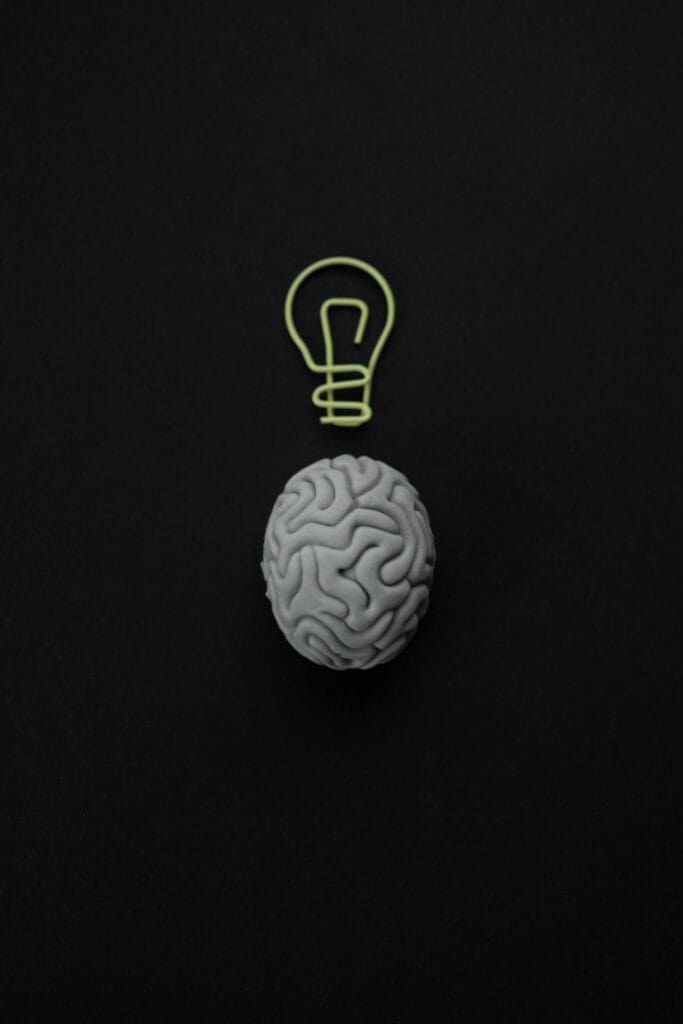In today’s fast-paced and distraction-filled world, maintaining focus and attention can feel like an uphill battle. With endless notifications, busy schedules, and mounting stress, staying on task often becomes a challenge. However, improving your focus is not impossible—it’s about adopting intentional habits and strategies that train your mind to work effectively.
If you’re looking to boost your concentration and sharpen your attention span, this guide provides actionable techniques to help you stay productive and mentally sharp, even in a noisy world.

1. Practice Mindfulness to Train Your Brain
Mindfulness is one of the most effective tools for enhancing focus and attention. By practicing mindfulness, you train your brain to remain present and avoid distractions caused by wandering thoughts.
What is Mindfulness?
Mindfulness involves being fully aware of the present moment without judgment. It’s about focusing on your breathing, sensations, or actions, allowing your mind to settle and stay engaged with the task at hand.
How to Practice Mindfulness for Better Focus
- Start with Short Sessions: Dedicate just 5–10 minutes each day to mindful breathing or meditation.
- Try Guided Exercises: Apps like Calm, Insight Timer, or Headspace offer excellent beginner-friendly mindfulness routines.
- Be Present in Everyday Activities: Practice mindfulness during daily tasks, such as eating or walking, by focusing on the sensations and actions involved.
Benefits of Mindfulness
Research shows that regular mindfulness practice reduces mental clutter, improves attention span, and enhances your ability to resist distractions. Over time, this leads to sharper focus and better productivity.
2. Break Tasks into Smaller, Manageable Steps
Large tasks can feel daunting and lead to procrastination or mental fatigue. Breaking them into smaller, actionable steps makes them easier to tackle and keeps your focus intact.
Why Breaking Down Tasks Works
When a task feels overwhelming, your brain tends to avoid it. By dividing it into smaller chunks, you give your brain achievable milestones, which create a sense of accomplishment and motivation to keep going.
How to Apply This Technique
- Identify the Task: Write down your large project or goal.
- Break It Down: Divide it into smaller, specific steps. For instance, instead of “write a report,” break it into “create an outline,” “write the introduction,” and so on.
- Prioritize Steps: Tackle high-priority or time-sensitive parts first.
- Track Progress: Use a checklist or productivity app to monitor what you’ve accomplished.
By focusing on one step at a time, you can stay engaged without feeling overwhelmed, and your concentration will naturally improve.
3. Minimize Distractions to Maximize Focus
Distractions are the biggest enemy of focus. From constant notifications to noisy environments, external factors can pull your attention away from what truly matters. The key is to identify your common distractions and actively work to minimize them.
How to Identify Your Distractions
- Track Your Interruptions: For a day, note what distracts you most—social media, emails, or environmental noise.
- Analyze Patterns: Identify when and where you’re most vulnerable to distractions.
Strategies to Limit Distractions
- Turn Off Notifications: Silence non-essential app alerts and set your phone to “Do Not Disturb” mode.
- Create a Focus-Friendly Workspace: Choose a quiet, clutter-free environment for work or study.
- Set Time Blocks for Tasks: Use focused work sessions where you commit to a single task without interruptions.
- Use Productivity Tools: Tools like Freedom or StayFocusd block distracting websites during work hours.
Digital Detox
Set specific times to check your phone or social media instead of allowing constant interruptions. For instance, limit social media use to 15 minutes during lunch or after work.
4. Take Regular Breaks to Recharge Your Brain
Contrary to popular belief, working non-stop doesn’t improve focus. Your brain needs periodic rest to maintain optimal concentration and avoid burnout.
Why Breaks Are Essential
Breaks allow your brain to reset, process information, and regain energy for the next task. Without them, you risk mental fatigue, which reduces your ability to concentrate.
How to Structure Effective Breaks
- Try the Pomodoro Technique: Work for 25 minutes, then take a 5-minute break. Repeat this cycle four times, then take a longer 15–30-minute break.
- Incorporate Physical Activity: Use breaks to stretch, take a short walk, or do light exercises to refresh your body and mind.
- Step Away from Screens: Avoid looking at your phone or computer during breaks to give your eyes and mind a rest.
The Science Behind Breaks
Studies show that short breaks improve attention and productivity. Even a few minutes of stepping away can significantly boost your mental clarity.
5. Fuel Your Brain with Proper Nutrition
Your diet plays a critical role in your ability to focus. Certain foods can boost brain function, while unhealthy choices may lead to brain fog and energy crashes.
Brain-Boosting Foods
- Omega-3 Fatty Acids: Found in salmon, walnuts, and flaxseeds, these improve cognitive function.
- Antioxidant-Rich Foods: Blueberries, spinach, and dark chocolate protect brain cells from damage.
- Hydrating Choices: Dehydration can impair focus, so drink plenty of water and incorporate hydrating fruits like cucumbers and watermelons.
Avoid These Energy Drainers
- Excessive caffeine: Too much coffee can lead to jitters and reduced concentration.
- Sugary snacks: While they give a quick energy boost, they cause crashes that harm focus.
6. Get Quality Sleep to Sharpen Focus
Sleep is your brain’s reset button. Without enough rest, your ability to concentrate, make decisions, and retain information diminishes significantly.
How to Improve Sleep for Better Focus
- Stick to a Sleep Schedule: Go to bed and wake up at the same time every day, even on weekends.
- Create a Sleep-Friendly Environment: Keep your bedroom dark, cool, and quiet.
- Limit Screen Time Before Bed: Avoid screens at least an hour before sleep to prevent disruptions in melatonin production.
The Connection Between Sleep and Focus
Aim for 7–9 hours of quality sleep each night. Well-rested brains are more alert, creative, and capable of sustained focus throughout the day.
7. Train Your Focus Like a Muscle
Your ability to concentrate can improve with regular practice. Just as you train your body at the gym, your brain benefits from consistent mental exercises.
Techniques to Strengthen Focus
- Practice Single-Tasking: Instead of multitasking, commit to finishing one task at a time.
- Use Focus Drills: Spend 5–10 minutes a day practicing extended periods of uninterrupted concentration, gradually increasing the time.
- Challenge Your Brain: Engage in activities like puzzles, reading, or memory games to keep your mind sharp.
8. Manage Stress for Improved Attention
Stress is a major roadblock to focus. When you’re stressed, your brain goes into overdrive, making it hard to concentrate. Learning to manage stress effectively can significantly enhance your attention span.
Stress Management Techniques
- Deep Breathing Exercises: Inhale deeply for four seconds, hold for four seconds, and exhale for four seconds to calm your mind.
- Regular Physical Activity: Exercise reduces stress hormones and boosts focus-enhancing chemicals in the brain.
- Seek Support: Talk to friends, family, or a therapist to process stress and regain mental clarity.
Final Thoughts: Building a Routine for Long-Term Focus
Improving focus and attention isn’t about quick fixes—it’s about building habits that sustain mental clarity over the long term. By incorporating mindfulness, managing distractions, taking breaks, and prioritizing sleep and nutrition, you can create a lifestyle that supports enhanced concentration and productivity.
Remember, small daily changes lead to significant improvements over time. Start with one or two strategies from this guide and build from there. Your ability to focus is a skill, and with consistent effort, you can master it.
What’s the first step you’ll take to improve your focus today? Share your journey in the comments below!



